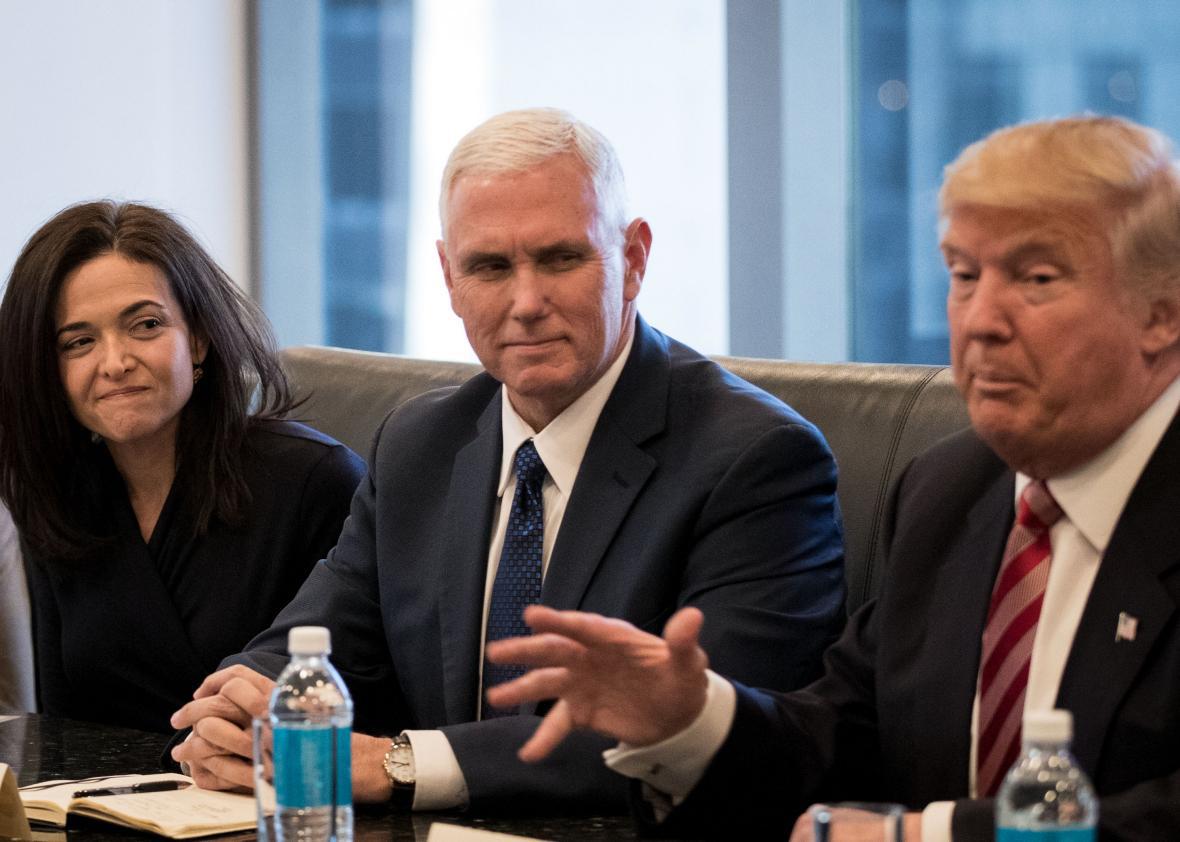Donald Trump wouldn’t have won the 2016 election if it weren’t for Facebook. That’s according to Theresa Hong, one of the main brains behind the digital arm of his presidential campaign. Hong was referring to the fact that Facebook allowed political campaigns to target ads to voters based on data that the social media network collects on users. And Trump’s campaign was masterful at it, in large part thanks to Cambridge Analytica, the data-targeting team that worked to make sure Trump made it to the White House.
While Facebook, Twitter, and Google are now under scrutiny—with Congress and the FBI investigating how Kremlin-backed accounts spread election ads on various online platforms—it’s worth considering how the Trump camp used social networks as well. We already know that Donald Trump Jr. solicited information from Russians in possible violation of election law, but we don’t know the extent of any potential such collusion. A new legal push in the United Kingdom could reveal how exactly Cambridge Analytica—and by extension the Trump campaign—was able to target voters the way that it did, and whether any links to the Russian targeting campaign might exist.
The Trump campaign spent $85 million on Facebook advertising and promotion, and according to Hong, Facebook and Google both sent liaisons to the Trump campaign and Cambridge Analytica to help them better use the tech companies’ ad targeting tools.
Cambridge Analytica is actually the spinoff of a company called SCL, a British behavioral research and communications firm that works with governments and corporations. The company claims to have “up to 5,000 data points on over 230 million American voters,” which it uses to create psychological profiles to “effectively engage and persuade voters using specially tailored language and visual ad combinations,” that appeal to each person on an emotional level.
That psychological data-modeling sparked the interest of David Carroll, a professor at Parsons School of Design who studies media, data-targeting, and campaigns. Carroll wanted to see exactly what data the company had been using to micro-target voters in the U.S. The United Kingdom has a data protection law that allows people to request their own personal data from any company that holds such information. Carroll put in a request to see if Cambridge Analytica had been shipping his information back to SCL in London. And to his surprise, he did get some of his personal data back.
Carroll learned that the company had given him scores on a scale of 1 to 10 on certain hot button political categories, like a “gun rights importance rank.” Based on these scores, he was ultimately listed as “unlikely” to vote Republican. However interesting this disclosure was, it wasn’t all that Carroll wanted to know.
Under Britain’s Data Protection Act, a subject can ask where a company gets such personal data, why the data is being processed, and who the data is being shared with. So, Carroll teamed up with Ravi Naik, a British solicitor who is pushing the case further.
Carroll said that Cambridge Analytica failed to provide all of the information it was required to by law. He and Naik have started to file pre-trial actions in preparation for a potential lawsuit, which could reveal more information about how voters were micro-targeted and where the Trump campaign got its data. The group is currently raising money to help cover the cost of possible forthcoming legal bills.
Such insight into the Trump data apparatus would help Americans understand how Republicans were able to instrumentalize Facebook and other data-driven ad platforms to help win the election. It would also potentially uncover how Cambridge Analytica, and thus Trump’s campaign, got its hands on the personal data of millions of voters. That’s important, not just because it would be useful to know how social media platforms can be leveraged to micro target voters based on individuated psychological profiles, but also because Cambridge Analytica is not your average data-targeting firm.
Until recently, former Trump campaign chief and White House chief strategist Steve Bannon was on the board of Cambridge Analyitica. The company’s primary financier is Robert Mercer, the secretive billionaire CEO of the New York investment firm Renaissance Technologies, who is also one of the main funders of Bannon’s Breitbart News. The family has also funded Milo Yiannopoulos, the Cato Institute, and the Heritage Foundation. And Mercer was the largest donor to Trump-backing Super PACs during the election, period. In other words, the Cambridge Analytica data operation has deep ties into the far reaches of the far right. Understanding this particular data-driven online campaign could ultimately prove useful, both to a curious public and to anyone investigating how social media companies were potentially manipulated to sway the U.S. election.
Facebook, Twitter, and Google are currently grappling with how they will explain to Congress the fact that Russian government linked groups appear to have used their ad targeting and other social media tools to attempt to sway U.S. voters and circulate misinformation. These investigators would be wise to pay close attention to whatever Carroll’s case might also be able to uncover.
